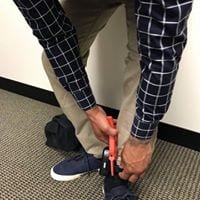Up until now the law in Massachusetts has been that anyone convicted of a sex offense was required by statute to wear a GPS ankle monitor. In Commonwealth v. Feliz, the Supreme Judicial Court addressed the question of whether the government can mandate GPS monitoring of all people convicted of “non-contact” sex offenses for the duration of their probation for the purposes of location tracking, even if there is no individualized reason to justify the tracking. The SJC held that for people convicted of non-contact sex offenses (such as possession of child pornography), GPS monitoring could not be imposed without a finding that there was justification for this tracking device. What this means is that an individual convicted of a non-contact sex offense is entitled to an evidentiary hearing to determine whether GPS monitoring should be imposed before they can be subject to monitoring. GPS monitoring cannot be automatically imposed by statute for people convicted of non-contact sex offenses.
While this case specifically addresses GPS imposition for people convicted of non-contact sex offenses, there is a gem hidden in footnote 11 of the opinion that will hopefully assist all people facing discretionary GPS monitoring as a condition of pre-trial release or probation. In footnote 11 the Court notes that Mr. Feliz established through records the difficulty of being subject the GPS monitoring. Feliz spent 5 months on GPS monitoring while the case was pending and during that time suffered THREE TO FOUR FALSE ALERTS PER WEEK when his monitoring device lost connection. The Court wrote in footnote 11:
In its filings in the Superior Court, the Commonwealth agreed that the defendant had been subject to alerts at least three or four times per week during that period, as a result of connectivity issues in the neighborhood where he lives and works. Examination of those reports shows that, on numerous occasions, resolution of the alerts took many hours; the defendant was at times ordered to go outside and walk around in order to obtain a signal; and multiple warrants for his arrest issued when he still was not able to obtain one, while following the instructions provided by probation. Ultimately, all of the alerts were resolved and the warrants were recalled.
While defense lawyers routinely cite anecdotes of technical failures by GPS tracking devices and how it impacts our clients lives, it is really helpful that the SJC acknowledged records corroborating this. Mr. Feliz’s false alerts often took hours to resolve causing distress and the risk of false arrest. This is the reality for people subject to GPS monitoring yet judges routinely impose this requirement even in cases where there isn’t a good reason for monitoring. When I say “good reason” for monitoring I am contemplating a situation where the accused is required to stay away from a specific location and the judge has reason to believe that a court order for the accused to do so may not be enough and tracking is necessary to ensure compliance. I’ve seen prosecutors request GPS monitoring at pre-trial when there wasn’t any stay-away provision or curfew whatsoever. Moving forward, I will be citing this footnote along with countless anecdotes from my own clients to keep them off of GPS unless there really is no other way to convince the judge to release them.
If you are subject to GPS monitoring and hope t have that requirement removed, please call my office for a consultation.

